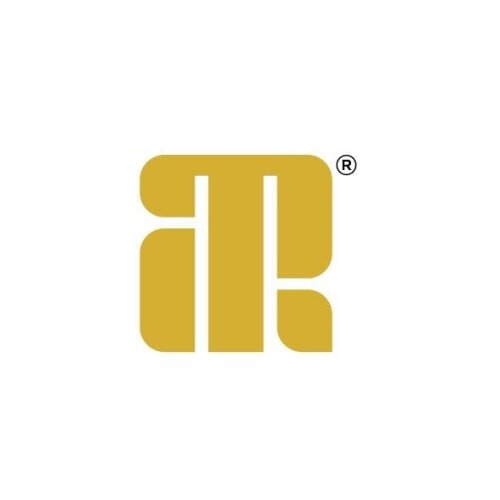As a Kuwaiti business owner, how do I determine if a shipment contains dual-use items that require export licenses under Kuwait and international controls?
Lawyer Answers

mohammad mehdi ghanbari
Dear Sir/Madam,
With respect and kind regards, thank you for your question about exporting laboratory equipment from Kuwait and how to determine whether your shipment contains dual‑use items that require an export licence. In summary, you will need to (1) classify each item technically against recognised dual‑use control lists, (2) check the destination, end‑user and end‑use, and (3) obtain any necessary export licences under Kuwaiti procedures and under the export‑control rules of the countries from which the equipment originates (for example, the US or EU, if the equipment is sourced from there).
First, classification: dual‑use items are goods, software or technology that have legitimate civilian uses but can also be used for military or weapons‑related purposes, and international regimes such as the Wassenaar Arrangement and other export‑control groups publish detailed lists of many such items that states use as the basis for their own controls. For each lab item, you should collect the exact model, technical specifications and datasheets and then check them against the relevant control lists (for example, the Wassenaar dual‑use list, the EU dual‑use list or the US Commerce Control List under the Export Administration Regulations for US‑origin goods) to see whether it has a controlled classification number. Items such as certain high‑precision measuring instruments, advanced lasers, high‑capacity centrifuges, specialised chemical equipment and radiation devices are more likely to fall under these rules.
Second, destination and end‑use checks: you must identify the true end‑user, all intermediaries and the final end‑use, and verify that none of them are listed on UN Security Council or other national sanctions lists, and that the equipment will not be used in nuclear, chemical, biological or military programmes that international export‑control regimes seek to restrict. Kuwait’s customs framework provides specific procedures and licences for exporting and re‑exporting goods, as well as for particularly sensitive items such as radioactive apparatuses and pesticides, which shows that the authorities expect exporters to disclose technical details and the intended use of controlled equipment. Even when Kuwaiti rules are less detailed than systems in the EU or US, you still need to respect the export controls of the supplier country and any UN or other binding sanctions applicable to Kuwait.
Third, licensing, documentation and penalties: if any item is listed on a dual‑use control list or if there is a ‘catch‑all’ risk because of a sensitive end‑use, you should apply for an export licence through Kuwait Customs and any relevant ministry, and also obtain a re‑export authorisation from the original exporting state where required (for example, from the US Bureau of Industry and Security for controlled US‑origin lab equipment). A complete application normally includes technical descriptions, invoices, contracts, a detailed end‑user certificate, and a clear written explanation of the civilian laboratory purpose of the equipment, which helps the authorities conclude that the risk of diversion is low. In many jurisdictions, violations of dual‑use export controls can lead to seizure of goods, very substantial fines and even criminal liability for responsible managers, so it is far safer to clarify any doubt with the authorities before shipping.
In terms of timing, each country sets its own deadlines, but as an illustration Georgia’s customs authority must issue a dual‑use permit no later than 20 days after receiving a complete application, which shows that even in relatively straightforward systems you should assume at least several weeks between filing and approval. Because specific processing times and responsible offices in Kuwait are not clearly published, the safest approach is to contact Kuwait Customs early in your planning and to avoid shipping or committing to fixed delivery dates until you know whether a licence is needed.

al-dostour law firm
1. Classifying Your Lab Equipment
To determine if your equipment is 'dual-use,' you must identify its specific technical characteristics and compare them against international control lists, such as the Wassenaar Arrangement or the Commerce Control List (CCL).
Key Categories: Lab equipment often falls under Categories 1 (Special materials/chemicals), 2 (Materials processing), or 3 (Electronics).
Self-Classification: You should review the technical specifications of your equipment to see if they meet the 'performance thresholds' listed in these categories.
Technical Evaluation: Since October 2024, Kuwait has implemented stricter conformity assessments under the KUCAS scheme. You may need a Technical Evaluation Report (TER) from an approved agency to confirm the nature of your products.
2. Verifying Destinations and End-Users
Compliance goes beyond the product itself; you must perform due diligence on your regional partner:
End-Use Check: Verify that the lab equipment will be used solely for the stated civilian purpose.
Denied Party Screening: Check your partner against international and Kuwaiti red flag lists of sanctioned individuals or entities.
3. Licensing Steps in Kuwait
If your items are classified as dual-use or restricted, you must obtain an Export License from the Ministry of Commerce and Industry (MOCI).
MOCI Application: Submit your commercial registration, civil ID, and specific product details to MOCI.
Special Clearances: Depending on the type of lab equipment (e.g., chemicals or medical-related), you may also need approvals from the Ministry of Health or the Public Authority for Industry (PAI).
4. Timelines and Penalties
Decision Time: While general customs approvals like the TIR can be processed within a few days, strategic licensing decisions involving inter-ministerial review typically take longer. You should allow several weeks for a final decision on complex dual-use items.
Non-Compliance Penalties: Violations of export controls in Kuwait are serious and can result in confiscation of goods, significant fines, cancellation of business licenses, and even imprisonment.
Free • Anonymous • Expert Lawyers
Need Personal Legal Help?
Connect with experienced lawyers in your area for personalized advice on your specific situation.
No obligation to hire. 100% free service.
Related Legal Experts
Get personalized help from lawyers specializing in this area
All lawyers are verified, licensed professionals with proven track records



